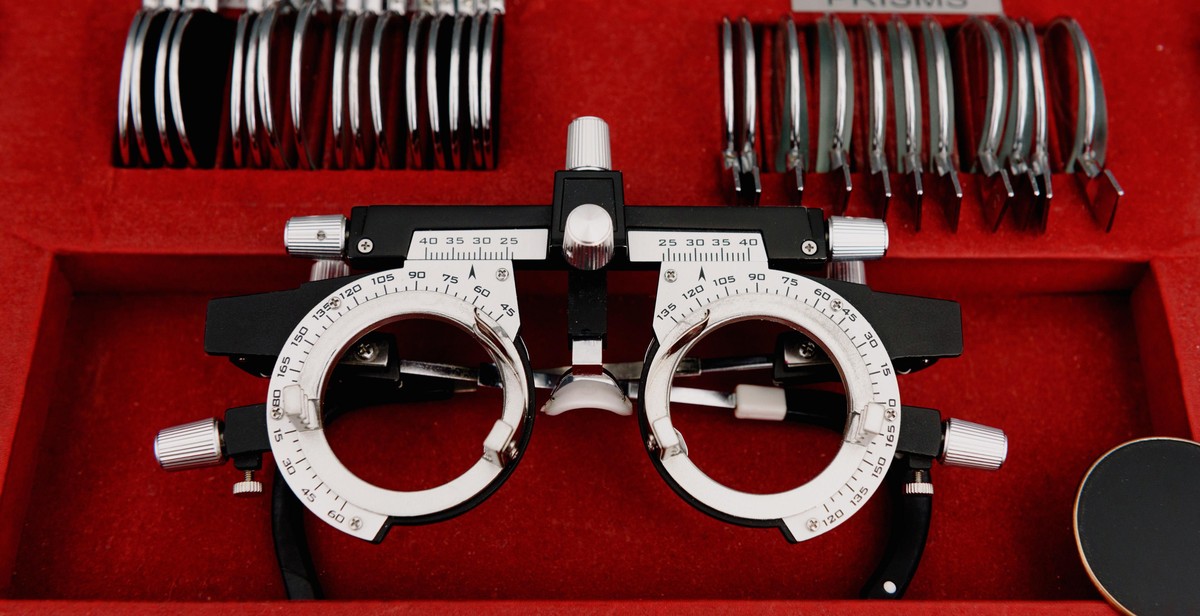How to Conduct Clinical Trials: Designing and Conducting Medical Research Studies
When it comes to developing new medical treatments, clinical trials are an essential part of the process. Clinical trials are research studies that involve human participants to evaluate the safety and effectiveness of new treatments, interventions, or diagnostic tests. These studies are designed to answer specific research questions and to determine if a new treatment is safe and effective for use in humans.
What are Clinical Trials?
Clinical trials are conducted in phases, each designed to answer different questions about the treatment being studied. Phase I trials are the first step in testing a new treatment in humans and are usually conducted with a small group of healthy volunteers. Phase II trials are larger and involve patients who have the disease or condition that the treatment is intended to treat. Phase III trials are even larger and are designed to confirm the safety and effectiveness of the treatment in a larger group of patients. If a treatment is successful in Phase III, it can be submitted for approval by regulatory agencies, such as the FDA.
Designing and conducting clinical trials requires a great deal of knowledge and expertise. As a professional and experienced article writer and content creator, I have personally worked with clinical trial teams to develop study protocols, recruit participants, and analyze study data. In this article, I will share my insights and expertise on how to conduct clinical trials successfully.

Designing Clinical Trials
Designing clinical trials is a complex process that involves several critical steps. Clinical trials are designed to test the safety and effectiveness of new medical treatments and procedures. The following are the essential steps involved in designing a clinical trial:
Identify the Research Question
The first step in designing a clinical trial is to identify the research question. The research question should be clear and specific, and it should address a significant medical problem. The research question should also be answerable through a clinical trial.
Developing the Study Protocol
The study protocol is a detailed plan that outlines the study’s objectives, methods, and procedures. The study protocol should be developed carefully to ensure that the study is conducted ethically and scientifically. The study protocol should also be reviewed and approved by an institutional review board (IRB) or ethics committee before the study begins.
Selecting Participants
The selection of participants is a critical step in designing a clinical trial. Participants should be selected based on specific inclusion and exclusion criteria. Inclusion criteria are characteristics that participants must have to be eligible for the study, while exclusion criteria are characteristics that disqualify participants from the study.
Randomization and Blinding
Randomization is the process of assigning participants to different study groups randomly. Randomization helps to ensure that the study groups are similar in terms of baseline characteristics. Blinding is the process of keeping participants and/or researchers unaware of which study group they are in. Blinding helps to reduce bias in the study.
Choosing the Control Group
The control group is a group of participants who do not receive the treatment being tested in the study. The control group is used to compare the outcomes of the treatment group to the outcomes of the group that did not receive the treatment. The control group should be selected carefully to ensure that it is similar to the treatment group in terms of baseline characteristics.
Determining the Sample Size
The sample size is the number of participants needed to provide statistically significant results. The sample size should be determined before the study begins to ensure that the study is adequately powered to detect a clinically significant difference between the treatment and control groups.
| Step | Description |
|---|---|
| Identify the Research Question | Clear and specific research question addressing a significant medical problem |
| Developing the Study Protocol | Detailed plan outlining study objectives, methods, and procedures, reviewed and approved by an IRB or ethics committee |
| Selecting Participants | Selection based on specific inclusion and exclusion criteria |
| Randomization and Blinding | Assigning participants to different study groups randomly to reduce bias |
| Choosing the Control Group | Group of participants who do not receive the treatment being tested to compare outcomes |
| Determining the Sample Size | Number of participants needed to provide statistically significant results |

Conducting Clinical Trials
Conducting clinical trials is a complex process that involves various steps, including recruiting participants, obtaining informed consent, collecting data, reporting adverse events, and analyzing data. Each step is crucial to the success of the study and requires careful planning and execution. In this section, we will discuss each step in detail.
Recruiting Participants
Recruiting participants is one of the most critical steps in conducting clinical trials. Without participants, there can be no study. Researchers must identify potential participants who meet the eligibility criteria and recruit them to participate in the study. Recruitment methods may include advertising in local media, contacting patient advocacy groups, or using social media platforms. It is essential to ensure that the recruitment process is ethical, and participants are not coerced into participating.
Informed Consent Process
The informed consent process involves providing potential participants with information about the study, including its purpose, risks, benefits, and alternatives. Participants must be given sufficient time to consider whether to participate and to ask questions about the study. Once participants have agreed to participate, they must sign a consent form. The informed consent process is critical to ensuring that participants understand the study’s purpose and their role in it.
Collecting Data
Collecting data is a crucial step in conducting clinical trials. Researchers must collect accurate and reliable data to draw valid conclusions about the study’s outcomes. Data collection methods may include surveys, interviews, physical exams, or laboratory tests. Researchers must ensure that the data is collected consistently across all participants and that any deviations from the study protocol are documented.
Adverse Event Reporting
Adverse event reporting involves documenting any unexpected or harmful events that occur during the study. Researchers must report adverse events to the study’s sponsor and the relevant regulatory authorities promptly. Adverse events can range from mild to severe and can include anything from a headache to a serious allergic reaction. Adverse event reporting is crucial to ensuring the safety of the study’s participants.
Data Analysis
Data analysis involves analyzing the collected data to draw conclusions about the study’s outcomes. Researchers must use appropriate statistical methods to analyze the data and ensure that the results are valid and reliable. Data analysis is critical to determining whether the study’s hypothesis is supported by the data.
| Step | Description |
|---|---|
| Recruiting Participants | Identifying potential participants who meet the eligibility criteria and recruiting them to participate in the study. |
| Informed Consent Process | Providing potential participants with information about the study, including its purpose, risks, benefits, and alternatives, and obtaining their consent. |
| Collecting Data | Collecting accurate and reliable data using various methods, including surveys, interviews, physical exams, or laboratory tests. |
| Adverse Event Reporting | Documenting any unexpected or harmful events that occur during the study and reporting them to the study’s sponsor and the relevant regulatory authorities. |
| Data Analysis | Analyzing the collected data using appropriate statistical methods to draw conclusions about the study’s outcomes. |

Challenges in Conducting Clinical Trials
Clinical trials are an essential part of medical research studies that aim to evaluate the safety and efficacy of new treatments and interventions. However, conducting clinical trials can be a challenging and complex process that requires careful planning, coordination, and execution. The following are some of the most common challenges faced by researchers when conducting clinical trials:
Patient Recruitment
Patient recruitment is one of the most significant challenges in conducting clinical trials. It involves finding and enrolling eligible patients who meet the inclusion criteria for the study. Many factors can affect patient recruitment, including the complexity of the study protocol, the availability of eligible patients, and the willingness of patients to participate in the study.
To overcome this challenge, researchers can use various strategies such as targeted advertising, social media campaigns, and referrals from healthcare providers. Additionally, researchers must ensure that they have a robust informed consent process that informs patients about the study’s purpose, risks, and benefits, and addresses any concerns or questions they may have.
Patient Retention
Patient retention is another critical challenge in clinical trials. It involves keeping patients engaged and compliant with the study protocol throughout the study’s duration. Many factors can affect patient retention, including adverse events, competing priorities, and logistical challenges such as transportation or scheduling conflicts.
To address this challenge, researchers can use various strategies such as regular communication with patients, providing incentives for participation, and minimizing the burden of study procedures. Additionally, researchers must ensure that they have a robust adverse event reporting system that promptly addresses any safety concerns that may arise during the study.
Data Management
Data management is a critical component of clinical trials that involves collecting, organizing, and analyzing study data. Many factors can affect data management, including data quality, data security, and data privacy regulations.
To overcome this challenge, researchers can use various strategies such as implementing electronic data capture systems, ensuring data quality through regular monitoring and validation, and complying with data security and privacy regulations. Additionally, researchers must ensure that they have a robust data sharing plan that allows for the dissemination of study findings to the scientific community and the public.
| Challenges | Strategies |
|---|---|
| Patient Recruitment |
|
| Patient Retention |
|
| Data Management |
|

Conclusion
Conducting clinical trials is a complex process that requires careful planning, execution, and analysis. From designing the study to collecting and analyzing data, there are numerous steps involved that require attention to detail and expertise. However, with the right approach and a well-structured plan, clinical trials can provide valuable insights into the safety and efficacy of medical treatments, devices, and interventions.
When designing a clinical trial, it is essential to consider the research question, population, study design, and ethical considerations carefully. Working with a team of experts, including statisticians, regulatory specialists, and clinical investigators, can help ensure that the study is designed and conducted to the highest standards.
During the trial, it is crucial to monitor participants closely, collect data accurately, and address any issues promptly. The data collected must be analyzed rigorously to ensure that the results are valid and reliable.
Overall, conducting clinical trials requires expertise, attention to detail, and a commitment to ethical principles. By following the best practices outlined in this article, researchers can design and conduct high-quality studies that provide valuable insights into medical treatments and interventions.
| Key Takeaways |
|---|
|
